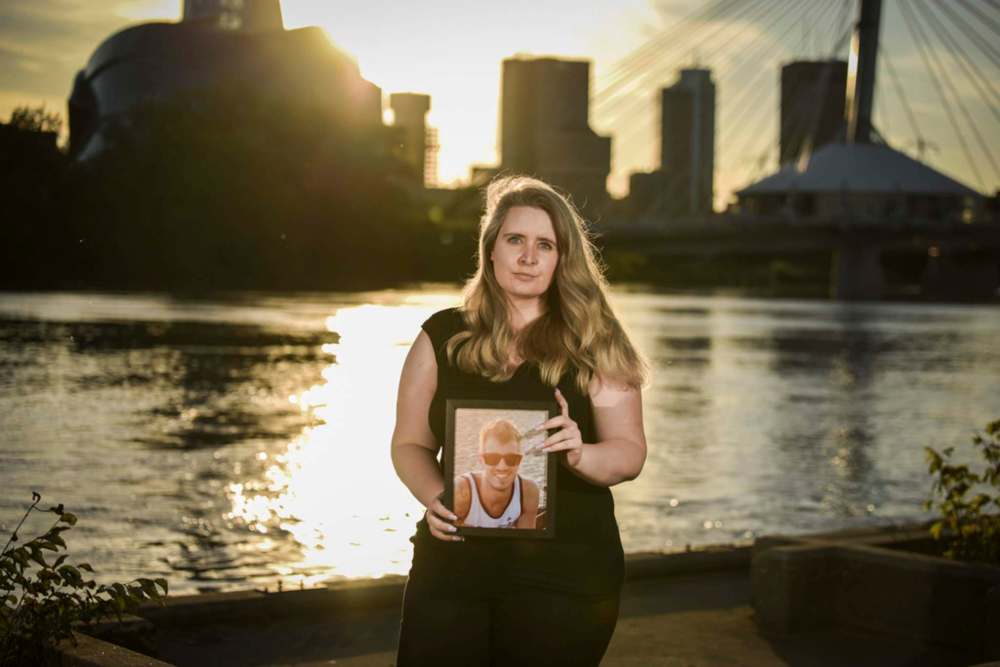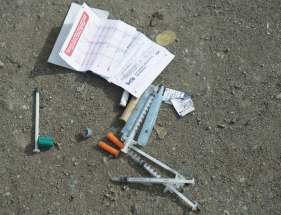Surge in overdoses warrants scrutiny
Read this article for free:
or
Already have an account? Log in here »
To continue reading, please subscribe:
Monthly Digital Subscription
$0 for the first 4 weeks*
- Enjoy unlimited reading on winnipegfreepress.com
- Read the E-Edition, our digital replica newspaper
- Access News Break, our award-winning app
- Play interactive puzzles
*No charge for 4 weeks then price increases to the regular rate of $19.00 plus GST every four weeks. Offer available to new and qualified returning subscribers only. Cancel any time.
Monthly Digital Subscription
$4.75/week*
- Enjoy unlimited reading on winnipegfreepress.com
- Read the E-Edition, our digital replica newspaper
- Access News Break, our award-winning app
- Play interactive puzzles
*Billed as $19 plus GST every four weeks. Cancel any time.
To continue reading, please subscribe:
Add Free Press access to your Brandon Sun subscription for only an additional
$1 for the first 4 weeks*
*Your next subscription payment will increase by $1.00 and you will be charged $16.99 plus GST for four weeks. After four weeks, your payment will increase to $23.99 plus GST every four weeks.
Read unlimited articles for free today:
or
Already have an account? Log in here »
Hey there, time traveller!
This article was published 23/04/2021 (1696 days ago), so information in it may no longer be current.
Beneath the all-consuming waves of the coronavirus pandemic, another deadly public health crisis has been festering in obscurity.
Last year, 372 people died of drug overdoses in Manitoba — a horrifying 87 per cent spike over 2019 fatalities, according to data released by the office of the chief medical examiner last week. Behind those data points are parents, spouses, friends and family members who have been failed by government inaction.
Drug overdose deaths spike by 87 per cent in 2020

Posted:
Annual drug overdose deaths reached an all-time high in Manitoba, after 372 people died in 2020, marking an 87 per cent increase in reported deaths over 2019.
The pandemic has poured fuel on an epidemic that has been raging in Manitoba and across the country for years. Fentanyl, a powerful synthetic opioid, has been linked to a rise in overdose deaths locally and nationally since at least 2016. In Winnipeg, methamphetamine use was the crisis dominating headlines until COVID-19 arrived in town. Even though attention has waned, the damage is ongoing and getting worse.
Stress, anxiety and social isolation makes for a dangerous combination when people use drugs. The likelihood of overdose increases with isolation, our main defence against the virus, and public health orders have made it harder to access Manitoba’s few in-person addiction treatment programs and detox facilities — Main Street Project, for example, has had to reduce its number of detox beds to meet restrictions.
At the same time, virtual counselling, while crucial during the pandemic, is generally less effective and isn’t accessible for everyone, according to a report from the Canadian Centre for Substance Use and Addiction.
The closure of the United States border has also disrupted the illicit drug supply in Canada, leading to higher toxicity and higher risk of overdose. Taken together, the forces working against someone battling addiction are of epic proportions.
In an open letter published last week, the Manitoba Harm Reduction Network called on the province to address the impact COVID-19 is having on people who use drugs, particularly when it comes to vulnerable populations. Addiction doesn’t happen in a vacuum and social inequalities — like unemployment, poverty and homelessness — contribute to higher drug use. Those same inequalities put people at greater risk of contracting COVID-19; providing safe shelter and a long-term housing strategy would go a long way in tackling both crises.
The network also recommends that the province decriminalize illegal drugs and drug use; expand access to a safe supply of opioids and stimulants, similar to alcohol and cannabis; and make naloxone kits widely available — currently, Manitobans can only get the lifesaving overdose medication through a health-care professional.
The letter — signed by more than 40 organizations and 317 doctors, nurses, academics and social service providers — is likely to have fallen on deaf ears. Time and again, Premier Brian Pallister’s Progressive Conservative government has demonstrated an aversion to evidence-based harm reduction strategies.
Drug use won’t go away and trying to fight addiction solely with prevention ignores those who are already in the throes of it.
Supervised consumption sites exist in nearly every Canadian province except Manitoba. These facilities have been proven to save lives and reduce the spread of infectious diseases. They are also an effective way to connect people with addiction treatment programs.
In response to a 2019 local feasibility study on such sites, then health minister Cameron Friesen said, “Our premier has been very clear: there really is no such thing as a ‘safe’ methamphetamine injection site.”
While 63 per cent of Manitobans polled in 2020 supported the development of safe consumption sites, sentiment among the provincial government remains unchanged.
Drug use won’t go away and trying to fight addiction solely with prevention ignores those who are already in the throes of it. People who use drugs deserve safety and support, otherwise they are vulnerable to becoming another gruesome statistic.










